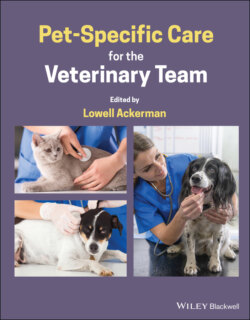Читать книгу Pet-Specific Care for the Veterinary Team - Группа авторов - Страница 293
3.7.5 Research Organizations
ОглавлениеIn general, research into the inheritance and genetic basis of health conditions occurs within university laboratories, institutes, veterinary organizations, and commercial genetic testing enterprises. The research is frequently undertaken in collaboration with veterinary professionals and owners, often relying upon information contained within health registries. An emerging model in some countries as well as in large veterinary companies with multiple hospitals is the wholesale collation of health records from individual veterinary practices for the purpose of facilitating research. Financial support for research into companion animal medical conditions comes in the form of grants from private foundations including the Canine Health Foundation, Morris Animal Foundation, Winn Feline Foundation, Grayson‐Jockey Club Research Foundation, and the Sport Horse Research Foundation as well as federal granting agencies when the work directly supports human health. Additionally, veterinary specialty board organizations may direct funds for the research of targeted health conditions, such as the American College of Veterinary Ophthalmologists and vision loss. Private foundations rely upon philanthropic donations to support their grant funding activities whereas commercial enterprises generally reinvest a portion of the resources obtained from marketing and sales of DNA testing.
The objective of the research is to develop predictive tools for owners and veterinarians to better manage health conditions in companion animals. Outcomes of research are phenotypic tests such as orthopedic, cardiac, ocular, and metabolic screenings that can be deployed generally once validated by healthcare professionals. Genetic mutation tests are the ultimate goal of the research as they are most predictive in disease expression or the propensity of an individual to pass genetic risk on to the next generation (see 3.6 Genetic Testing). In the absence of the mutation test, linked tests may provide guidance although caution must be applied due to the lack of accuracy of such linked tests.
Health screening diagnostics developed through research must be properly validated across many unrelated individuals living in varied locations and exposed to different environments to assess general applicability of the test. Prior to incorporating testing is an understanding of limitations that might exist for a given test in order to manage those limitations and expectations. Genetic mutation tests are usually 100% accurate; however, accuracy relies upon the generalizability of the test across breeds, the testing procedure, and the quality of the genetic testing laboratory. Ideally, researchers subject their findings to the peer review process prior to making a proposed test available.
